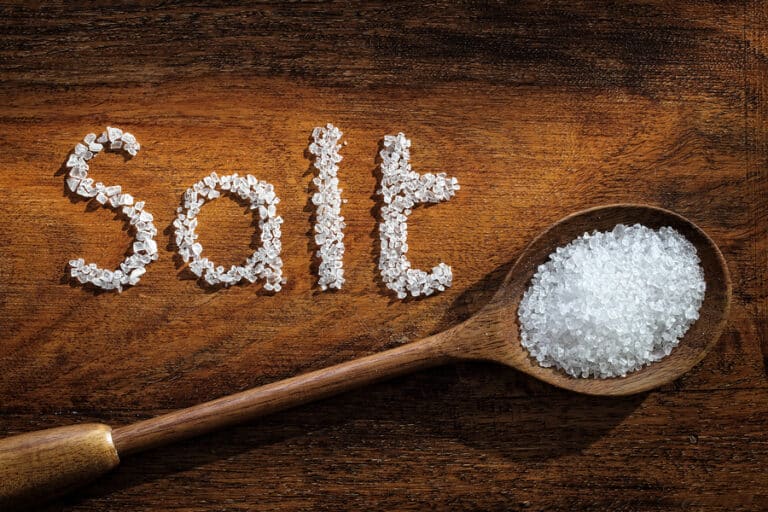Have you ever thought twice when you see your father reach for the salt shaker? Does he routinely salt food he has not even tasted? Even when you made it with your own loving hands?
Salt and old age have a complex relationship. While many people over 65 could probably stand to eat less salt, a few need more salt in their diets. Unfortunately, there’s no one-size-fits-all prescription for how much salt any individual needs. And many caregivers misunderstand where dangerous sodium levels really come from.
Salt sensitive vs. salt resistant
Excess salt consumption raises blood pressure in many people. And these people are said to be “salt sensitive.” Harvard Health estimates that sixty percent of people with high blood pressure are salt sensitive. That means that, if they lower salt intake, their blood pressure is likely to go down.
But that means another forty percent of blood pressure patients will get no benefit from eating bland food. They are “salt resistant.” To make matters even more confusing, there’s a small group of folks who are “reverse salt sensitive,” These people may need to add salt to their diet. You heard that right. Their blood pressure can go too low if they don’t eat enough salt.
Doctors currently consider it too burdensome to measure salt sensitivity in patients. But if dad has gone a month without salt and his high blood pressure hasn’t budged, it’s time for his caregivers to try other treatments.
It’s not the salt shaker; it’s the drive through
Excess sodium normally comes from too much processed food, especially fast food. Cheap burgers, french fries, canned vegetables, ketchup, boxed macaroni and cheese mixes, and mass-produced baked goods have way more salt than most people will detect with their taste buds. Commercial food processors load food with salt to compensate for the flavor lost in processing.
According to Harvard Health, only five percent of your senior’s salt intake comes from table salt added to food. So caregivers might want to give dad a pass when he reaches for the salt shaker.
For people of every age, but particularly the elderly, it makes more sense to increase the number of whole foods consumed. Whole foods are what they sound like. They are foods that look more or less like what they were originally. They aren’t hidden in boxes, cans, and envelopes.
Apples, bananas, cherries, celery, salad greens, and carrots are good examples of whole foods that are, ideally, eaten raw. Potatoes, chicken, fish, and eggs are also whole foods, and they retain their nutrients when cooked. The secret is to cook them yourself, add salt to taste, and avoid the line at the fast food counter.
If your senior has difficulty preparing whole foods, it’s time to hire a home care worker to come in a few hours a week and do some cooking. Your home care professional will cook delicious and healthy meals with a naturally low quantity of salt. Big portions can be broken down and frozen for easy use later.
In conclusion, the perils of salt may have been overestimated. While some people do, indeed, need to cut back on sodium intake, the secret is to avoid over processed and fast food. Grandma was right. Home cooked meals, made from scratch, are the very best.
Sources
https://www.health.harvard.edu/heart-health/salt-sensitivity-sorting-out-the-science
https://www.gbhealthwatch.com/Trait-Salt-Sensitivity.php
https://www.ncbi.nlm.nih.gov/pmc/articles/PMC3724405/#:~:text=However%2C%20the%20most%20reliable%20method,%5B24%2C26%E2%96%AA%5D.
https://www.health.harvard.edu/blog/in-defense-of-the-salt-shaker-2019110618175
If you are considering caregivers in Marcellus, MI, for an aging loved one, please call the caring staff at Fresh Perspective Home Care at (269) 329-4717. We are here to help!
- Five Ways to Make Long-distance Caregiving Easier on Mother’s Day - April 11, 2024
- Navigating Hospital Stays: A Guide for Seniors and Loved Ones - March 26, 2024
- Quick Tips for Decluttering the Bathroom for Seniors with Alzheimer’s - March 8, 2024



